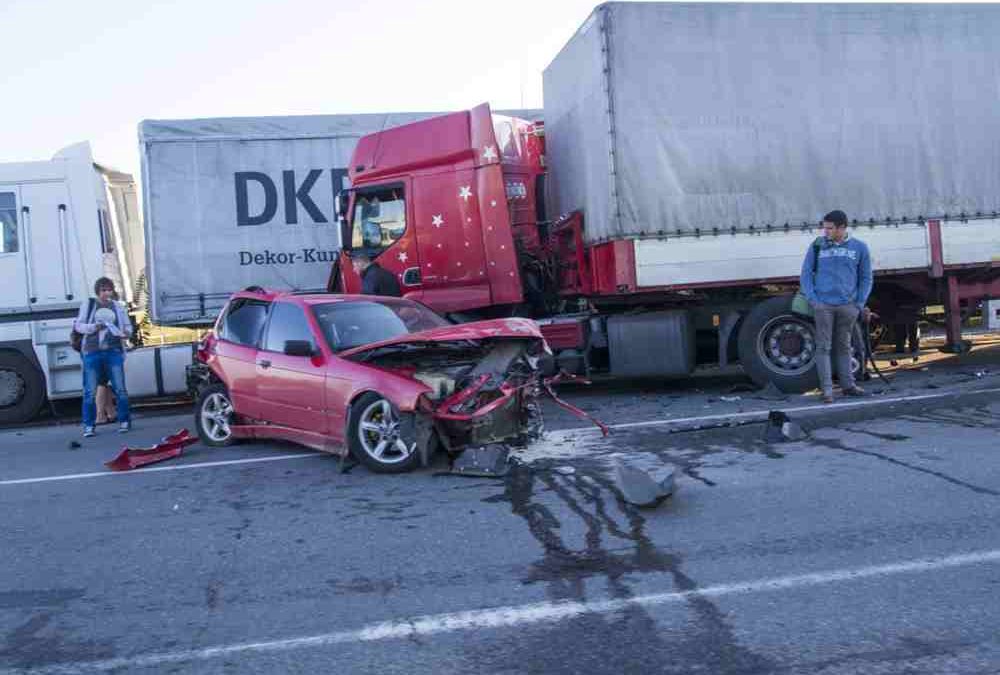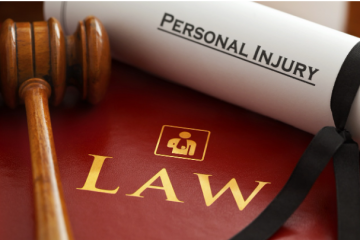Due to the size and weight of the vehicles involved, truck accidents are often catastrophic, leading to severe consequences for all parties. Understanding who is liable in these accidents is crucial for ensuring that victims receive appropriate compensation. In this blog post, a Brooklyn truck accident attorney will break down the complexities of determining liability in truck accidents and provide a clear pathway for those seeking justice.
Understanding The Basics Of Truck Accident Liability
Due to the multiple parties involved, liability in truck accidents can be more complex than in standard car accidents. In a typical car accident, the driver at fault is usually responsible. However, in truck accidents, liability can extend to the truck driver, the trucking company, the manufacturer of the truck parts, or even a third-party maintenance provider. Each of these entities can play a role, making it essential to investigate thoroughly.
The truck driver might be at fault if the accident was caused by negligent behavior such as distracted driving, fatigue, or substance abuse. In these cases, the driver’s actions directly contribute to the accident. However, the trucking company may also be liable if they failed to comply with regulations, such as enforcing reasonable driving hours or maintaining the vehicle properly. It is not uncommon for trucking companies to push drivers to meet tight deadlines, potentially leading to dangerous driving conditions.
In addition, the truck manufacturer or its parts could be held accountable if a defect in the vehicle contributed to the accident. For instance, the manufacturer might be liable for the defect if faulty brakes led to a collision. Lastly, the maintenance provider could share liability if improper servicing or repairs were a factor. Each of these potential liabilities highlights the complexity of truck accident cases.
Key Factors That Influence Liability
Several factors can influence the determination of liability in a truck accident. One of the most significant is the adherence to federal and state regulations governing the trucking industry. The Federal Motor Carrier Safety Administration (FMCSA) sets numerous rules regarding driver qualifications, vehicle maintenance, and operational practices. Non-compliance with these regulations can be a strong indicator of negligence.
Another critical factor is the condition of the truck and its equipment. Regular inspections and maintenance logs can prove whether the vehicle was in good working order. If a truck’s brakes failed due to poor maintenance, the party responsible for maintaining the truck could be liable. Similarly, if a load was improperly secured, leading to a rollover or spill, this could indicate negligence on the part of the loading company.
The driver’s actions at the time of the accident are also scrutinized. Evidence such as logbooks, electronic logging devices, and surveillance footage can help establish whether the driver was fatigued, speeding, or acting irresponsibly. In some cases, the driver’s history of traffic violations or accidents may also be relevant in establishing a pattern of negligent behavior.
The Role Of Evidence In Establishing Liability
Gathering and analyzing evidence is crucial in determining liability in truck accidents. Police reports are often the first piece of evidence collected, providing an initial assessment of the accident scene and any immediate observations about the causes. Eyewitness testimonies can also offer valuable insights, corroborating or challenging the accounts of those involved.
In addition, advanced technology plays a crucial role in these investigations. Many trucks have “black box” data recorders that capture critical information about the vehicle’s speed, braking, and other operational metrics leading up to the accident. This data can be instrumental in reconstructing the events and identifying any technical failures or driver errors.
Legal professionals often work with accident reconstruction experts to create a detailed analysis of the crash. These experts use the evidence collected to simulate the accident, providing a clearer picture of how it occurred and which factors contributed to it. This reconstruction can be vital in court, helping to establish liability and persuade a judge or jury.
Challenges In Proving Liability
Despite the availability of evidence, proving liability in truck accidents can be challenging. Trucking companies often have robust legal and insurance teams working to minimize liability. They may dispute claims, argue contributory negligence, or even attempt to shift blame onto other parties involved in the accident.
Therefore, victims of truck accidents must be prepared for a potentially lengthy legal battle. Having an experienced attorney who specializes in truck accident cases can be invaluable. These legal professionals understand the intricacies of trucking regulations and have the resources to conduct thorough investigations and build a strong case.
Moreover, the statute of limitations can affect the ability to file a lawsuit, so prompt action is necessary. Each state has its own laws regarding the time frame within which a lawsuit must be filed, and missing this deadline can result in the forfeiture of the right to seek compensation.
Conclusion
Determining liability in truck accidents is a complex process that requires a thorough understanding of multiple factors and parties involved. The Brooklyn truck accident attorney believes victims can more effectively pursue the compensation they deserve by understanding the nuances of truck accident liability. As regulations and technologies evolve, staying informed about these changes can further empower individuals facing these challenging situations.



